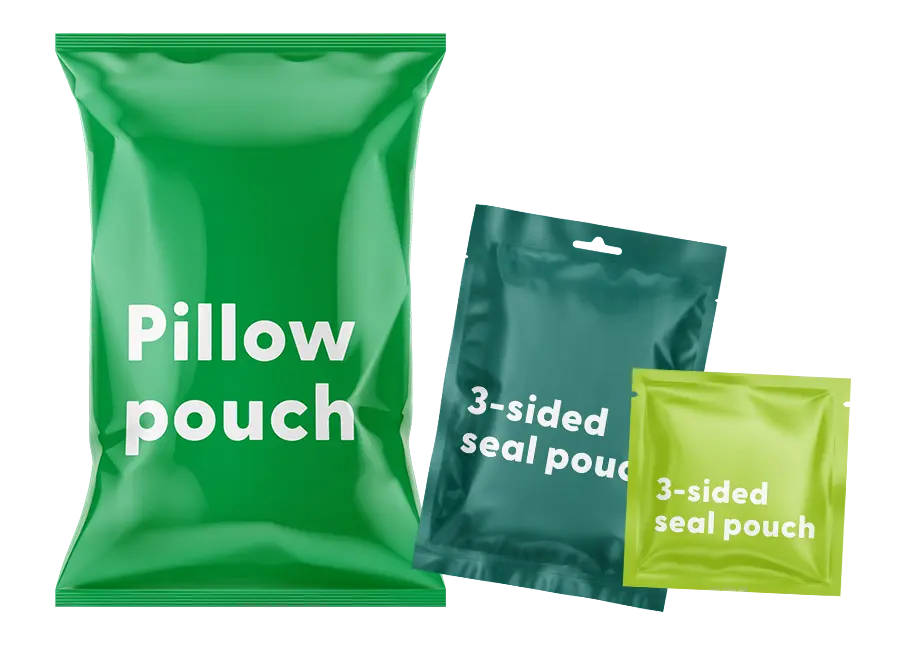Introduction
In the realm of packaging, soft packages have emerged as a versatile and innovative solution for a wide range of products. Soft packaging offers unique benefits compared to traditional rigid packaging, making it an increasingly popular choice for various industries. This article explores the concept of soft packages, their applications, and the advantages they bring to the marketplace.
Defining Soft Packages
Soft packages, also referred to as soft packaging, are a type of packaging that uses flexible materials to enclose and protect products. Unlike traditional rigid packaging, which typically incorporates rigid materials like plastics or metals, soft packages utilize materials such as films, foils, laminates, or flexible plastics. These materials provide pliability and adaptability, allowing the packaging to conform to the product’s shape.
Applications of Soft Packages
Soft packages find application in a diverse range of industries, including food and beverage, pharmaceuticals, cosmetics, electronics, and more. Some notable applications include:
a) Food and Beverage: Soft packages are commonly used for products such as snacks, confectionery, sauces, and beverages. The flexibility of the packaging ensures easy handling, convenient storage, and extended shelf life for perishable items.
b) Pharmaceuticals: Soft packaging is used extensively in the pharmaceutical industry for products such as tablets, capsules, powders, and creams. The packaging provides barrier protection, ensuring product integrity and extending shelf life.
c) Cosmetics: Soft packages are favored in the cosmetics industry for products like creams, lotions, gels, and masks. The flexibility and superior sealing properties of the packaging enhance product preservation and reduce the risk of contamination.
d) Electronics: Soft packages are utilized for protecting delicate electronic components, such as smartphones, tablets, and computer accessories. The packaging offers cushioning and protection from scratches and impact damage.
e) Soft Toy Packaging: Soft packages are specifically designed for toys, ensuring easy handling and preserving the softness and integrity of stuffed animals, plush toys, and dolls.
Advantages of Soft Packages
a) Lightweight and Space-Efficient: Soft packages are generally lighter in weight compared to rigid packaging, reducing shipping costs and environmental impact. Their flexibility also allows for efficient use of storage space, optimizing logistics and inventory management.
b) Customizable and Eye-Catching Designs: Soft packages offer ample design possibilities, allowing for vibrant colors, appealing graphics, and innovative shapes. The visual appeal of soft packaging can enhance product presentation and create a memorable customer experience.
c) Reduced Risk of Breakage: Soft packages provide a higher degree of flexibility and shock resistance compared to rigid packaging. This reduces the risk of product breakage during handling and transportation, contributing to cost savings and customer satisfaction.
d) Convenience and Ease of Use: Soft packages often incorporate user-friendly features such as resealable closures, tear notches, and easy-open mechanisms. These attributes enhance convenience and ensure product freshness while facilitating effortless access for consumers.
e) Environmentally Friendly: Soft packages are often made from recyclable materials and can be more environmentally friendly than rigid packaging. Recycling programs for soft packaging are increasingly available, promoting sustainability and reducing waste.
Soft Touch Packaging: Elevating the Consumer Experience
A variant of soft packages is soft touch packaging, which offers a tactile experience by utilizing special coatings or materials that have a velvety or suede-like feel. Soft touch packaging enhances the premium look and feel of products, leaving a lasting impression on the consumer. Its luxurious texture provides a sensory experience, elevating the perception of quality and value.
Conclusion
Soft packages have revolutionized the packaging industry with their flexibility, versatility, and unique design possibilities. From food and beverages to pharmaceuticals, cosmetics, electronics, and soft toys, the applications of soft packaging are vast. The advantages of soft packages, such as lightweight and space-efficient design, customized branding opportunities, reduced risk of breakage, convenience and ease of use, and environmentally friendly attributes, have made them increasingly popular in various sectors.
Additionally, soft touch packaging adds a touch of luxury and provides a memorable tactile experience for consumers. As businesses and consumers continue to prioritize sustainability and sensory experiences, soft packages are poised to play a significant role in meeting these demands. In the ever-evolving packaging landscape, soft packages represent a dynamic and innovative solution, capable of transforming the way products are presented, protected, and experienced.

Post time: 09-06-2023

